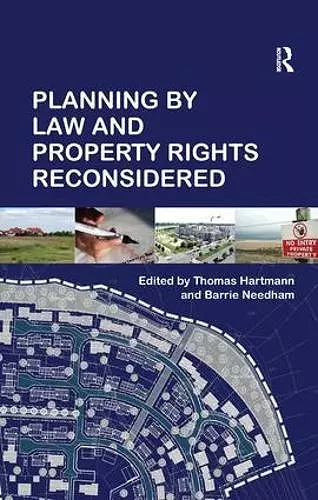Planning By Law and Property Rights Reconsidered
Thomas Hartmann editor Barrie Needham editor
Format:Hardback
Publisher:Taylor & Francis Ltd
Published:28th May '12
Currently unavailable, and unfortunately no date known when it will be back
This hardback is available in another edition too:
- Paperback£51.99(9781138256941)

Countries which take spatial planning seriously should take planning law and property rights also seriously. There is an unavoidable logical relationship between planning, law, and property rights. However, planning by law and property rights is so familiar and taken for granted that we do not think about the theory behind it. As a result, we do not think abstractly about its strengths and weaknesses, about what can be achieved with it and what not, how it can be improved, how it could be complemented. Such reflections are essential to cope with current and future challenges to spatial planning. This book makes the (often implicit) theory behind planning by law and property rights explicit and relates it to those challenges. It starts by setting out what is understood by planning by law and property rights, and investigates - theoretically and by game simulation - the relationships between planning law and property rights. It then places planning law and property rights within their institutional setting at three different scales: when a country undergoes enormous social and political change, when there is fundamental political debate about the power of the state within a country, and when a country changes its legislation in response to European policy. Not only changing institutions, but also global environmental change, pose huge challenges for spatial planning. The book discusses how planning by law and property rights can respond to those challenges: by adaptive planning), by adaptable property rights, and by public policies at the appropriate geographical level. Planning by law and property rights can fix a local regime of property rights which turns out to be inappropriate but difficult to change. It questions whether such regimes can be changed and whether planning agencies can make such undesirable lock-ins less likely by reducing market uncertainty and, if so, by what means.
"[A]s a reflection about the various aspects and challenges of planning by property rights, the book is certainly a welcome addition to an area of academic inquiry that is becoming increasingly important and deservedly so." - International Planning Studies, Claudio De Magalha, University College London, UK
ISBN: 9781409437215
Dimensions: unknown
Weight: 589g
248 pages